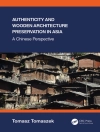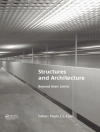A landmark account of architectural theory and practice from acclaimed philosopher Roger Scruton
Architecture is distinguished from other art forms by its sense of function, its localized quality, its technique, its public and nonpersonal character, and its continuity with the decorative arts. In this important book, Roger Scruton calls for a return to first principles in contemporary architectural theory, contending that the aesthetic of architecture is, in its very essence, an aesthetic of everyday life. Aesthetic understanding is inseparable from a sense of detail and style, from which the appropriate, the expressive, the beautiful, and the proportionate take their meaning. Scruton provides incisive critiques of the romantic, functionalist, and rationalist theories of design, and of the Freudian, Marxist, and semiological approaches to aesthetic value.
In a new introduction, Scruton discusses how his ideas have developed since the book’s original publication, and he assesses the continuing relevance of his argument for the twenty-first century.
关于作者
Roger Scruton (1944–2020) was a writer and philosopher. His many books included
On Human Nature and
The Soul of the World (both Princeton), as well as
A Short History of Modern Philosophy.












